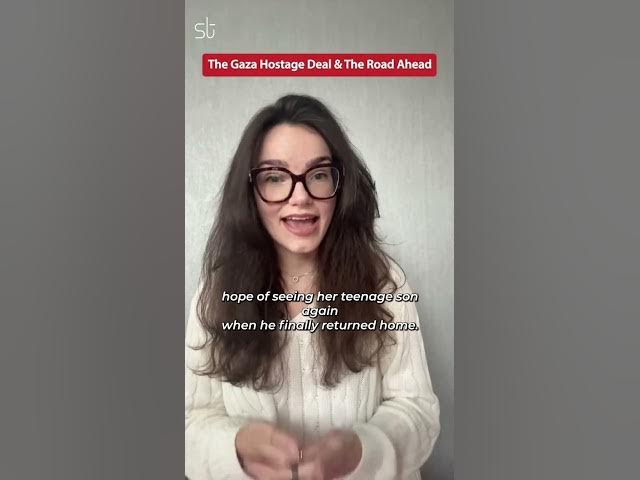0:00
For the first time in many months, there
0:02
is a rare feeling of relief in the
0:04
Middle East. All living Israeli hostages
0:07
held by Hamas have been released under a
0:10
historic deal. One that also saw nearly
0:13
2,000 Palestinian prisoners walk free.
0:17
Families have waited for this moment
0:20
through unbearable uncertainty. Some
0:23
waited for children, others for parents,
0:26
some received loved ones alive, others
0:30
only memories and silence. This exchange
0:34
isn't just a political deal. It is
0:36
deeply human. The agreement came after
0:40
weeks of behind the scenes talks between
0:43
Israel, Hamas, the United States, Egypt,
0:47
and Qatar. It is part of a large
0:50
ceasefire framework aimed at ending the
0:53
devastating conflict that has destroyed
0:55
much of Gaza and claimed thousands of
0:58
lives. Under the deal, Hamas released
1:02
the remaining hostages in phases
1:04
monitored by international mediators. In
1:08
return, Israel freed around 1,900
1:11
Palestinians from its prisons. Some
1:14
serving long sentences, others detained
1:17
without formal charges. In Israel, they
1:21
were tears of joy and mourning. At the
1:23
same time, in Gaza, the release of
1:26
prisoners were met with celebration and
1:29
questions about what happens next.
1:33
President Donald Trump, who played a key
1:36
role in pushing the talks forward,
1:38
called the agreement a dawn of peace.
1:42
Standing before the contested Israel
1:44
Parliament, he said it was proof that
1:47
even the most bitter enemies could
1:49
choose dialogue over destruction. But
1:53
optimism comes with caution. Many in the
1:56
region know how a giant peace can be.
1:59
Previous ceasefires collapsed under
2:01
pressure from mistrust and violence.
2:05
This time the focus is shifting to
2:07
rebuilding. Not just infrastructure but
2:11
confidence between communities. In
2:14
Egypt, world leaders are gathering for a
2:16
peace summit in the coastal city of Sham
2:19
Elshik. The goal is to design a
2:21
long-term plan for Gaza. how it will be
2:24
governed, who will ensure security, and
2:27
how international aid can be delivered
2:30
safely. Behind the headlines are stories
2:34
of survival and trauma. One Israeli
2:37
mother said she had almost given up hope
2:40
of seeing her teenage son again. When he
2:43
finally returned home, he was frail but
2:46
alive. Her words, "It is a miracle, but
2:49
it still hurts." On the other side, a
2:52
Palestinian father, newly freed after
2:55
years in detention, said he wished for a
2:58
peace that doesn't need prisoners. These
3:02
voices from both sides remind the world
3:05
that political peace means nothing
3:07
without personal healing. Rebuilding
3:10
Gaza is an enormous task. Entire
3:13
neighborhoods are gone, water systems
3:15
are broken, and hospitals are struggling
3:18
to operate. International donors have
3:22
pledged billions in aid, but delivering
3:24
that aid safely remains a major
3:28
challenge. There is also the question of
3:30
governance. Who would lead Gaza once the
3:34
reconstruction begins? Some countries
3:36
want a multinational oversight group,
3:39
while others believe Palestinians should
3:42
manage the process independently.
3:45
Diplomats are calling this a window of
3:48
hope. But that window can close fast if
3:51
trust doesn't grow. For now, families
3:54
are holding each other again. The
3:56
streets, once filled with fear, have
3:59
moments of calm. The future is
4:01
uncertain, but it is a chance to rewrite
4:04
a painful story that has lasted far too


